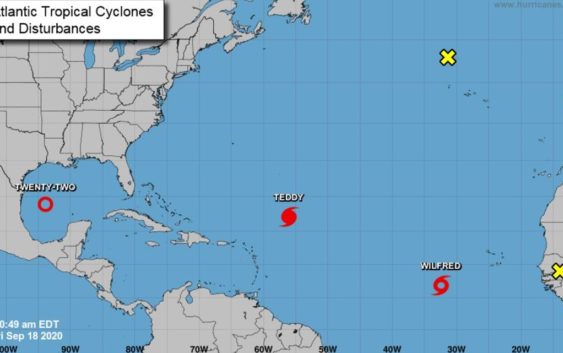- Weather Impact Alert: dangerous travel conditions, flooding possible in the mountains Tuesday and Wednesday
- Austin community unites to combat wildfires with Firewise program
- $37M drainage improvement project designed to combat flooding in NE Harris County
- Temporary bridges in Avery County at risk due to severe weather threat
- FEMA extends aid as Hurricane Helene recovery efforts surpass $360M
Tropical Storm Wilfred forms in the eastern Atlantic; Greek alphabet names next up

After using up all the traditional storm names for 2020, meteorologists will now use Alpha, Beta and other Greek letters for future Atlantic storms.
MIAMI — Tropical Storm Wilfred has formed in the eastern Atlantic, becoming the latest storm in an active hurricane season.
The storm’s maximum sustained winds Friday morning were near 40 mph (65 kph). The U.S. National Hurricane Center says slight strengthening was possible during the day but weakening should start over the weekend.
Wilfred was centered about 630 miles (1,015 kilometers) west-southwest of the Cabo Verde Islands and was moving west-northwest near 17 mph (28 kph).
The storm comes amid a very active hurricane season in the Atlantic and “Wilfred” is the last name on the Hurricane Center’s list of storm names for the season.
“Get out the Greek alphabet,” the National Hurricane Center tweeted. After using up traditional storm names, meteorologists will now use Alpha, Beta and other Greek letters for future storms.
The only time they had done this before was in the deadly 2005 hurricane season, during which Hurricane Katrina devastated New Orleans. It is still peak Atlantic hurricane season for a few more weeks and forecasters are watching at least three other systems for signs of development, including one that is a tropical depression in the western Gulf of Mexico.
The prior record for the earliest 21st named storm was Wilma on October 8, 2005, according to Colorado State University hurricane researcher Phil Klotzbach.